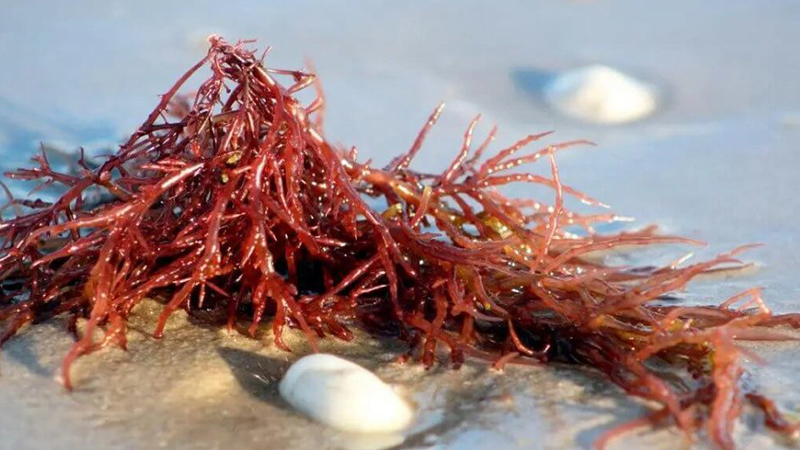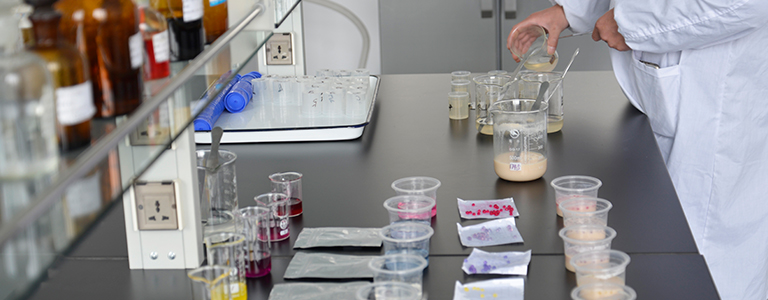What is carrageenan? The function and efficacy of carrageenan
What is carrageenan? The function and efficacy of carrageenan
What is carrageenan? Carrageenan is a common food additive extracted from red seaweed. Manufacturers often use it as a thickener. Scientists believe that carrageenan can cause inflammation, digestive problems, such as abdominal distension, irritable bowel disease (IBD), and even colon cancer. Next, we will introduce the harm and use of carrageenan to human body.
Carrageenan, also known as carrageenan, staghorn alginate, and Irish moss gum, is the calcium, potassium, sodium, and ammonium salts of polysaccharide sulfates composed of galactose and dehydrated galactose. Due to the different combination forms of sulfates, they can be divided into Kappa, Iota and Lambda. Carrageenan is white or light brown particles or powder, odorless or slightly odorous, and tastes sticky and smooth. Dissolve in water at about 80 ℃ to form a viscous, transparent or slightly milky, easy-flowing solution.

Carrageenan is extracted from red seaweed.
Carrageenan is a kind of food additive, belonging to a kind of dietary fiber. It can play a role of thickening, stabilizing and emulsifying when added to food. Since the raw material for making carrageenan is natural plants, such as marine red algae, etc., it is not harmful to human body when applied under the relevant standards for food production.
Some people believe that carrageenan will be degraded in high temperature and other environments, and the degradation products will cause harm to human body after being ingested, such as causing digestive system diseases, including digestive tract inflammation, ulcers, and even canceration. Such claims have no scientific basis. However, in order to avoid unnecessary harm, it is still recommended to avoid eating food containing food additives as much as possible, and try to choose natural food instead. In addition, the standard for the use of food additives stipulates that carrageenan cannot be added to some foods, such as milk powder for infants and young children. Because of the weak gastrointestinal function of infants, long-term intake of carrageenan may affect the digestive function, and is harmful to the health and development of the body.
Because carrageenan belongs to dietary fiber, normal adults can help gastrointestinal peristalsis and promote defecation to a certain extent when taken in an appropriate amount. If it causes harm to human body, it is usually seen in the case of excessive intake of carrageenan. For example, a large amount of carrageenan is added to the food intake, which is equivalent to a large amount of dietary fiber intake. For people with weak digestive function, it may lead to indigestion, abdominal distension, diarrhea and other uncomfortable symptoms.
What does the study show?
Degraded carrageenan is not safe to eat. Animal studies have shown that it can cause intestinal tumors and ulcers, and may even cause colon cancer. Due to the possible risks, few studies have investigated the potential impact on humans.
This is because various studies dating back to the 1960s have shown that this substance may degrade and become toxic when mixed with stomach acid. The medical community is uncertain about the degradation degree of carrageenan in the digestive system. This means that we do not know whether any quantity is toxic. Even undegraded carrageenan can cause inflammation and intestinal diseases, which indicates that this substance may cause ulcers and irritable bowel syndrome.
Sodium alginate, carrageenan, Shandong sodium alginate, potassium alginate
Taishen Biological is a sodium alginate manufacturer, which produces sodium alginate, potassium alginate and carrageenan in Shandong Province. Welcome new and old customers to call for consultation.







